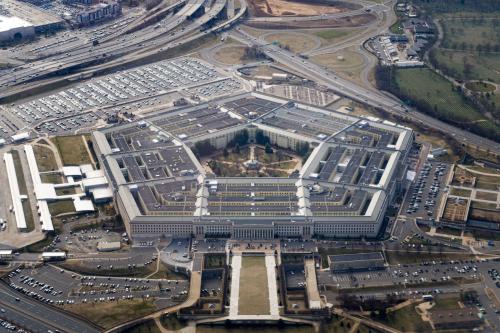As Israelis and Arabs continue their debate over who won and lost in Lebanon, one outcome already seems clear: America lost. Washington’s decision to back Israel’s military campaign unconditionally and refusal actively to seek an early ceasefire may have had some marginal benefits for the US, such as the destruction of some of Hizbollah’s military capability. But in the broader scheme of things, Washington’s support of this war and tolerance for the way it was fought have been a disaster.
America’s stance on the Lebanon war has had a wide range of negative consequences for America. It has driven Sunni and and Shia Arabs together in an anti-US front, at a time when potential US allies among Sunni Muslims were themselves worrying about the rise of Hizbollah and Iran. It has provoked and empowered the Iranian-backed militias in Iraq, just as Washington is deploying more troops to Baghdad to try to quell the violence there. It has distracted attention from the Iranian nuclear issue, just as the United Nations Security Council was coming together to threaten sanctions on Tehran. It has destroyed whatever remaining hope there was for the US to be perceived as an honest broker between Israelis and Arabs in the search for peace in the Middle East. It has undermined US allies and democratic reformers in Arab states. It has also created a new crisis of confidence with America’s European allies just when transatlantic relations were starting to improve.
Perhaps most important, it has almost certainly helped create more terrorist enemies, as images of Lebanese women and children crushed under Israeli bombs were broadcast on satellite televisions throughout the world. On an overall balance sheet, these developments vastly outweigh whatever benefits came from giving Israel a few more weeks to destroy Hizbollah’s mostly replaceable missiles.
Proponents of the Bush administration’s approach claim that far from undermining US interests with its Lebanon campaign, Israel was actually doing a service for America. In this view, the US is essentially at war with an “Islamic-fascist” front, to borrow president George W. Bush’s language, and Israel’s attack on Hizbollah was just an early battle in what some US neo-conservatives and politicians such as Newt Gingrich are already calling “world war three”.
They argue that the only way to deal with such a front is to destroy it, and therefore Israel was acting in America’s interest in launching the campaign. But this is a huge over-simplification of the strategic situation in the Middle East today, one that risks turning the assumption of a single enemy into a self-fulfilling prophecy. It conflates a complex array of connected but separable challenges – a Shia theocracy in Iran, a secular dictatorship in Syria, the nationalist/Islamist Hamas in Palestine, various Shia militia and Sunni insurgent groups in Iraq, and Lebanon’s Hizbollah – into a monolithic threat that cannot be deterred or dealt with except through overwhelming force. Just like the Bush administration’s approach to Iraq, it demonstrates utter disregard for the tendency of foreign military intervention to generate nationalist resentment and violent resistance.
It remains unclear whether US officials were involved in the planning of Israel’s war on Hizbollah (as asserted by Seymour Hersh in last week’s New Yorker magazine) or whether Israel’s actions surprised Washington and were unconditionally supported out of political reflex. Either way, it seems astonishing that US policymakers did not think through the ways in which Israel’s military campaign might undermine competing American goals in the region. US officials now portray the decision by Condoleezza Rice, US secretary of state, to go to New York to negotiate a ceasefire last week as a bold diplomatic move that demonstrated US leadership and brought peace, but the real question is why it took her nearly 30 days to act. The damage done to western interests in the greater Middle East – to say nothing of the social and physical infrastructure in Lebanon and Israel – far exceeds whatever gains the Israeli military campaign achieved in the intervening period.
It is too late now to undo all this damage. To make the best of a bad situation, the Bush administration should do what it can to bolster the Lebanese government, support the deployment of a capable UN force, provide reconstruction assistance and encourage a political process in the region.
In the future, however, the US must think more carefully about the broader impact of its Middle East diplomacy, even if at times this means taking a different position from its closest regional ally. This would be the best way to help Israel, which would benefit from having a superpower friend that maintains some credibility and diplomatic influence in the Middle East.
The Brookings Institution is committed to quality, independence, and impact.
We are supported by a diverse array of funders. In line with our values and policies, each Brookings publication represents the sole views of its author(s).



Commentary
Op-edAmerica Has Emerged as a Loser in the Middle East
August 21, 2006